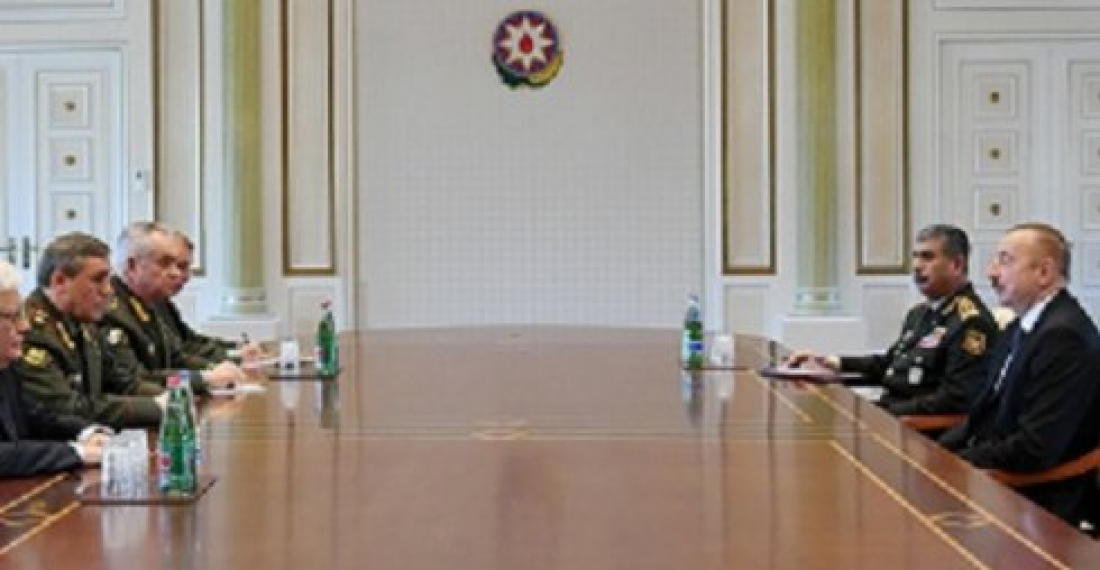Russian First Deputy Defence Minister and Chief of the General Staff of the Russian Armed Forces, General Valery Gerasimov, and NATO Supreme Allied Commander in Europe, General Curtis Scaparrotti, met in Baku on Wednesday to discuss European and global security issues.
"The two military commanders exchanged views on the European and global security situation. General of the Army Valery Gerasimov noted NATO's increasing military presence close to Russia's borders, which is not conducive to easing tensions," the Russian Defence Ministry said in a statement. The statement added that the parties briefed each other on major operational training activities planned in 2019. [They] reaffirmed interest in maintaining contacts".
Earlier, General Gerasimov met in Baku with Azerbaijan president, Ilham Aliyev.president Aliyev said he was grateful that NATO and Russia had chosen Baku as the venue for the meeting between their military heads. He described this as a sign of respect for and trust in Azerbaijan "and another indication of the country becoming a venue of major international events that contribute to the strengthening of stability and security in the world". Aliyev added that the visit of the delegation led by General Valery Gerasimov also creates a good opportunity to discuss issues relating to Azerbaijan-Russia relations. Noting that bilateral ties between the two countries are developing very successfully and dynamically in all areas, including in the military field, President Ilham Aliyev pointed out that high-level meetings play an important role in expanding cooperation, according to a report carried on the presidential website.
source: commonspace.eu
photo: President Ilham Aliyev of Azerbaijan met with the Chief of Staff of the Russian Armed Forces on Wednesday, 12 December. (picture courtesy of the press service of the president of Azerbaijan).






